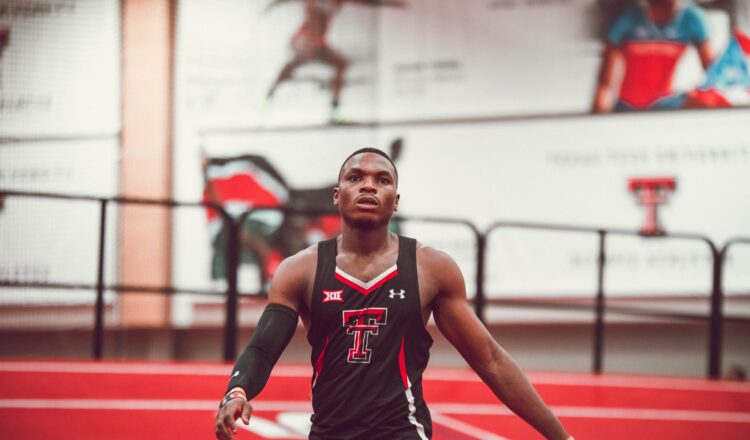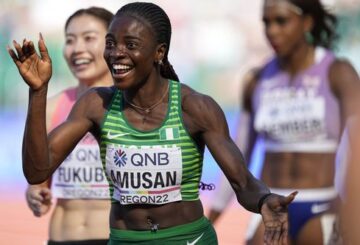The Athletics Federation of Nigeria has intensified efforts to prevent its athletes from engaging in the usage of illegal substances in the wake of the suspension of Nigerian sprinter Divine Oduduru by the Athletics Integrity Unit for Anti-Doping Violations on February 9.
The AIU had in September 2022 temporarily suspended 2022 Commonwealth Games gold medalist Grace Nwokocha over allegations of doping, and young high jumper David Aya had tested positive for drugs at the 2022 World Athletics Junior Championships in Cali, Colombia. Oduduru’s case is the most recent to rock Nigerian athletics.
The federation has always supported “clean sports,” according to Professor Ken Anugweje, Head of the AFN’s Anti-Doping and Integrity Unit. He added that they won’t let up on their campaign to end doping in Nigerian athletics.
Anugweje said, “Nigeria is in category A of the Athletics Integrity Unit, which means that any country in that category does well in athletics and has a high doping risk. “Nigeria is not the only country in that category, we have Kenya and many top athletics countries are in that pool too.”
The AFN Anti-doping and Integrity Unit had implemented a number of steps, including routine testing of athletes before and after important competitions, to educate athletes about doping, which he further underlined.
“The measures are well spelt out in Rule 15 of the Athletics Integrity Unit and it entails informing and educating the athletes regularly on the dangers of doping, testing the athletes regularly to detect those who may want to violate and prescribe appropriate sanctions, as well as mount surveillance.
“Taking drugs is cheating and is dangerous to their health, the AFN advocates for clean sports and we want to keep the integrity of athletics and maintain the health and wellbeing of athletes, that is why we are in this fight against doping, which is in three areas — first to prevent doping, we inform and educate; to detect doping, we test and to deter doping, we punish.
“Oduduru’s case is a continuation of the Blessing Okagbare drug case, it’s the conclusion of the investigation they carried out on both athletes.”
Oduduru had not competed in any event for more than a year, according to Anugweje, because he had not been available for testing.
“Oduduru has not taken part in any competition in the last 12 months because he is in a pool of athletes that ought to be monitored. So, the AFN is doing its part and the AIU is pleased with what we are doing.”
Speaking further, Anugweje revealed that some of the results announced by the AIU were some of the tests the AFN carried on the athletes, which were sent to the international body for a formal announcement.
“Going by Category A countries, our top athletes are required to be in a pool and in that pool, we test them at least three times before any major competitions, so before they appear in these competitions we will detect those violators from the tests we carried out before the competition. The announcement is then made globally. So, we also test them (athletes) and also detect those who have violated them.
“We can’t issue any statement as regards the results of the tests we carried out, it’s only the international body that can issue a statement on that. There are laboratories that conduct these tests, they are World Anti-Doping Agency-accredited laboratories, and they send their results to the appropriate authorities and send them to AFN.
“This is what we call notification and they send it to the governing body, World Athletics. It is the governing body that demands that we go through the whole process of doping control, call the athletes involved, hear them out and pass our judgement. And after that, the punishment is prescribed and announced.
“So most of the announcements you hear from AIU emanate from the AFN Anti-doping and Integrity Unit.”





